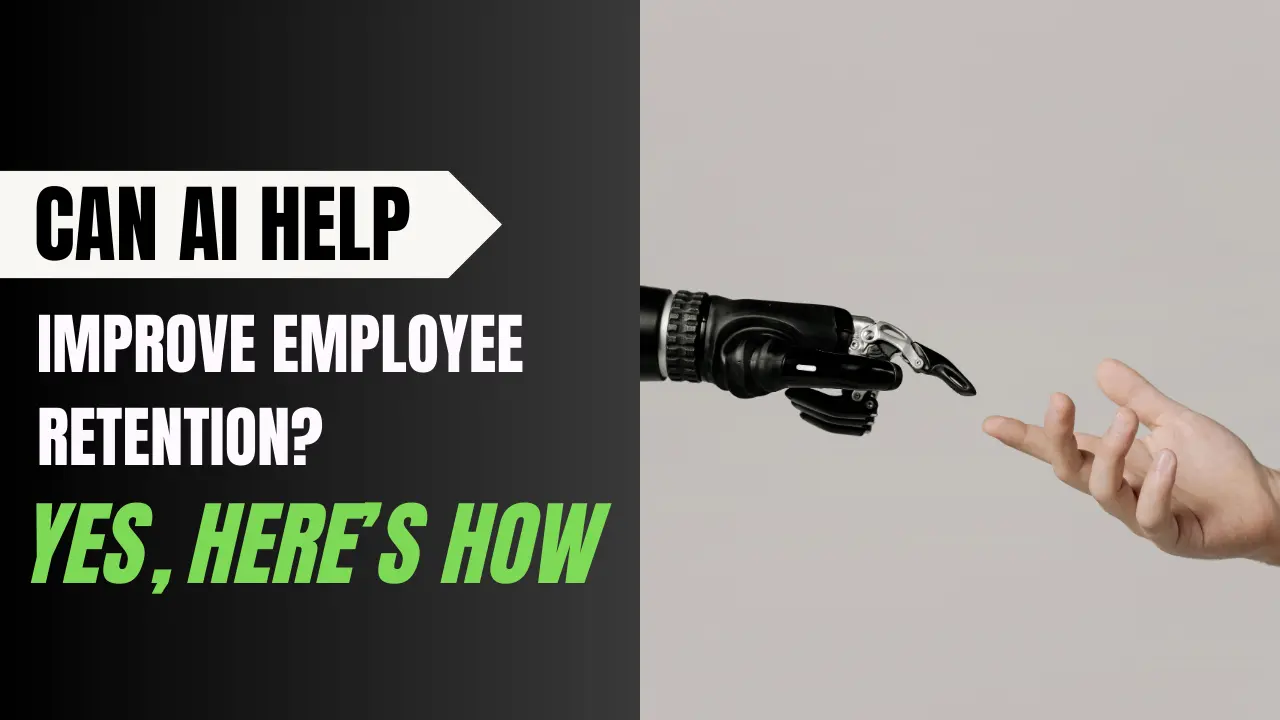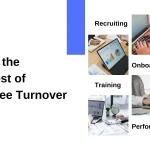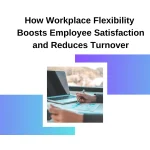
One of the largest issues facing businesses today is employee retention. Long-term retention of talented employees is a goal common to all businesses. However, a lot of workers quit because they are unhappy, unsupported, or feel bored.
Artificial Intelligence (AI) can be very helpful in this situation. AI isn’t limited to data analysis and automation. Additionally, it can increase worker loyalty, engagement, and satisfaction. Let’s explore how AI adoption and employee retention go hand in hand.
Keeping employees is just as important as hiring them. High turnover costs a company time and productivity. When workers leave, companies lose skills and knowledge. It also affects team morale and customer experience.
Studies show that hiring a new worker can cost thousands of dollars. On top of that, training new people takes time. Therefore, businesses save more money by maintaining the satisfaction of their current staff. For this reason, managers want to know how AI can increase worker satisfaction and retention.
AI tools can study data about employees and contribute to improved employee experiences.
It offers personalized learning, smarter scheduling, and real-time support. Higher satisfaction is the result of all these minor enhancements. People are more likely to stick around when they feel appreciated. Thus, there is a close relationship between AI adoption and employee retention.
Here are some important ways that AI is assisting businesses in retaining their staff:
AI can look at data like:
AI made chatbots provide 24/7 support. They respond to HR inquiries quickly. Employees don’t have to wait for lengthy emails or approvals. Employees feel happy when support is provided more quickly. Customer satisfaction increases when issues are resolved quickly.
Every employee has different learning styles. AI develops training programs that are made for every employee. It makes recommendations for classes, abilities, and career pathways. Workers stay longer when they see growth opportunities. They believe that the business is investing in their future.
AI can optimize work schedules. It makes sure no one is overloaded. Smart systems predict faults before they happen. Employees with a balanced life are more loyal. They give their best at work without stress.
AI can track performance in real-time. It alerts managers when someone does a great job. This helps leaders give instant recognition. Timely rewards boost morale. Workers feel valued and motivated to stay.
The core of employee engagement is feedback. Conversational surveys are outdated nowadays. However, AI provides more accurate and faster feedback.
Artificial intelligence systems can instantly analyze employee feedback, uncovering problems and issues in responses. This allows leaders to accurately understand their team. Managers can also quickly address issues using this data, giving employees the impression that their opinions are valued.
Physical health is just one aspect of employee well-being; it also includes life balance, emotional support, and mental health. Health apps with AI capabilities can track stress levels, promote relaxation, and even suggest personalized wellness activities.
Focusing on wellness sends a strong message that the company values its employees. Additionally, employees tend to stay longer when they feel appreciated.
There was a large retail store with a large number of employees. However, the problem was the continued absence of employees from their jobs. The main one is unfair action schedules. Some employees get too many shifts and feel very tired, while others get too few shifts and worry about money. Everyone was not satisfied.
Then, the department implemented a modern system to plan shifts better. This system aims to distribute working hours more fairly. Gradually, the employees began to feel respected and cared for. Become less frequent and continue their duties for a longer period of time. It is worth noting that about a quarter of the employees chose to stay in comparison to the previous one.
In one large software company, many employees were leaving because of burnout. They had too much work, too many deadlines, and no time to breathe. Managers did not always notice the stress until it was too late.
The company then introduced a system that helped track how much work people had and even showed early signs of stress. When the system showed warning signs, managers stepped in early to help. They gave lighter tasks or offered support. Because of this, employees felt valued, and many decided not to leave. Turnover went down in a big way.
Stories such as these prove that employees are happier and more dedicated when employers show concern for them and act quickly. Longer employee retention is a result of improved planning, assistance, and equity.
AI is not a magic solution. There are many challenges that businesses can face when they adopt AI:
The best results come when AI insights are combined with genuine human care.
Employee retention is about more than salaries. It is about making people feel supported, valued, and understood. AI is helping companies achieve this in practical ways.
By predicting turnover, improving satisfaction, supporting wellness, and offering growth opportunities, AI makes retention easier. But AI alone is not enough; human empathy and leadership are still essential.
The true formula for success is obvious: mix employee retention and AI adoption tactics with sincere concern for people. Long-term growth, loyalty, and turnover reduction are all facilitated by this balance.
Need personalized support? Contact us today.

Boosting Productivity Through Retention: A Two-Way Relationship Minal Joshi Jaeckli October 31, 2025 When leaders talk about productivity, the conversation almost always drifts toward tools,.

What Is the Real Cost of Employee Turnover? (And How to Reduce It) Minal Joshi Jaeckli October 28, 2025 Every leader knows turnover is costly,.

How Workplace Flexibility Boosts Employee Satisfaction and Reduces Turnover Minal Joshi Jaeckli October 25, 2025 Work has changed a lot in the past few years..